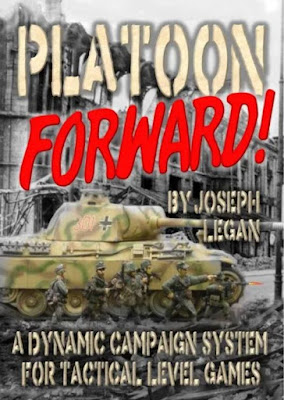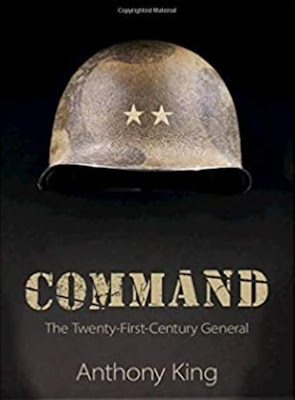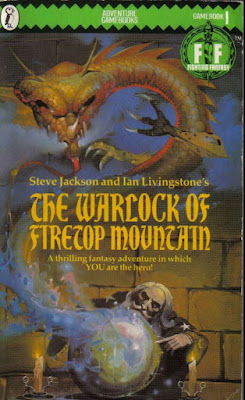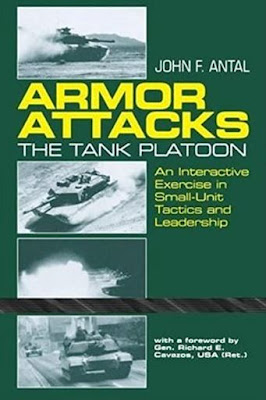We have all been down this road one or two great games leads to a discussion about a campaign, the initial enthusiasm wains after the delay between games, players lose interest and the whole campaign falls apart.
With several players in our group currently amassing forces for the Western Desert, I was looking for a way to link games at a local and wider theatre level. I have been toying with a number of ideas around a narrative campaign but weaving in a number of command decisions for the officers on either side of the conflict.
Steve over at Wargames With Toy Soldiers: 1685 - 1985: recently posted his thoughts about running a campaign in France 1940 and striking a balance between sweeping campaign moves and games on the tabletop.
Given the challenge maintaining on going campaigns, logistics, book keeping and maintain momentum, the best route is likely to be a narrative campaign as mentioned previously Platoon Forward has some very useful mechanism for low level units and the introduction of personality traits for each leader.
But I want to expand on the post battle follow up and it lead me to think about what's next and what choices would be available to a leader after an engagement. If you have a successful encounter what does that mean for you as a leader of men, if you fail or receive more than acceptable casualties what does that do for your career and reputation amongst your peers?
Everyone has some one they report in to. Commanders at all levels want to showcase there successes, be it keeping their men safe, seeking promotion or covering their own backs if things don't go to plan. Anthony King latest book Command, The 21st Century General is an excellent book on some prominent battlefield leaders.
With a number of players in a potential campaign, how to keep them interested in between games and give them command choices after each encounter.
I thought back to the early 80's and Ian Livingstone's Fighting Fantasy series where 'adventurers' chose their own path with a dice-based role playing element, each choice taking you through a different path to victory or an untimely death. The reader would typically follow a non-sequential numbered section fighting monsters along the way. I wonder could this mechanism be adapted to WW2 gaming?
I wondered if it had been done before and searched the web and found an interesting number of publications from Col John Antal such as Armor Attacks in the story you are the leader of a U.S. Army Abrams Tank Platoon, you are forced to make a number of important tactical and operational choices.
This feels like something that I can use for my campaign, where depending on the tabletop outcome players are given a number of simple choices.
Reflecting on the last game - what choices would be open to the opposing commanders?
Allied
- Offensive - You now picture of have a clearer of the enemy defences, send in your men again. (This would show your tenancy and would build on your reputation, but only if you can keep casualties to an acceptable level and succeed.)
- Defensive - After being beaten back from the town, send a portion of your command to the northern flank to encircle the town and cut off and reinforcements. (This would show your initiative despite the earlier set back.)
- Static - Hold position and await reinforcements before assaulting the town again, (The higher ups might view this as a failure given the urgency of the need to clear the town, but it could be seen as understandable given the opposition.)
Vichy
- Offensive - With the Allies beaten back - Follow up taking the high ground to the south of the town where a battery of artillery has been shelling the town. (This shows good initiative but be careful to not weaken your defences so much to expose the town.)
- Defensive - Withdraw from the town reforming to stronger positions. (You gave the allies and bloody nose and kept your command intact.)
- Static - Hold your position - Dig In - For the expected further attack. (This is our soil the higher ups recognise how you brought them time to organise their defences deeper in country and to perhaps reinforce your position.)
Each commanders simple selection might lead to an alternative encounter on the table.
for example
Defensive vs Static - The Vichy forces slip away - when the allies enter the town they find it empty.
Offensive vs Offensive - Players might dice off to see who has the initiative perhaps totalling battlefield casualties from the first encounter or by asking players to pick a time of day to launch their sortie? What if the French are out when the Allies attack?
Defensive vs Defensive - The French are forced to fight a running battle to escape the table or are ambushed trying to leave the town?
Giving the players limited campaign choices will allow me to control the broad direction of the campaign but giving the commanders some interesting challenges which link directly to the battlefield encounters whilst focusing on their career goals, nurturing their forces, growing their command and building their reputation.
Right back to the brushes, both the Commonwealth and Vichy are in need of reinforcements.




Some interesting ideas there Stu - this kind of campaign, with some decisions to make based on the previous battle experiences, should add extra enjoyment and keep participants engaged I would think. The other trick to a successful campaign is not allowing big gaps to arise between games - if you are playing this at a club, just try to make sure it's played week after week after week until its finished - no breaks for an ECW or Napoleonic game "for a change"!
ReplyDeleteSo many ideas so little time Keith, hopefully a mix of club nights and gaming nights should keep the campaign flowing and having a couple of extra people nudging the games along.
DeleteCheers
Stu
This all sounds good Stu and I look forward to seeing what you come up with, how it works etc. Certainly the narrative approach, much favoured by myself as you know, makes it a lot easier to run the campaign which takes a lot of pressure off yourself.
ReplyDeleteVery true Steve and keeps the book keeping to a minimum, I am hoping the individual character traits add a person flavour to encounters.
DeleteCheers
Stu
This is all very interesting stuff and relevant to me as I led a few campaigns in the past. I recommedn you having a look to "At The Sharp End", the campaign supplement designed by TooFatlardies for Chain of Command. Many of the topics you cover here are dealt with, and the system was very effective (at least to me and to my gaming group) to keep the momentum in our campaigns. Hope this helps
ReplyDeleteThanks AI I will take a look and pull in suitable elements, thanks for dropping by.
DeleteCheers
Stu
Some really interesting ideas..I love a good narrative campaign!
ReplyDeleteThanks Jim for your comments, next game is Offensive vs Static so we shall see.
DeleteCheers
Stu